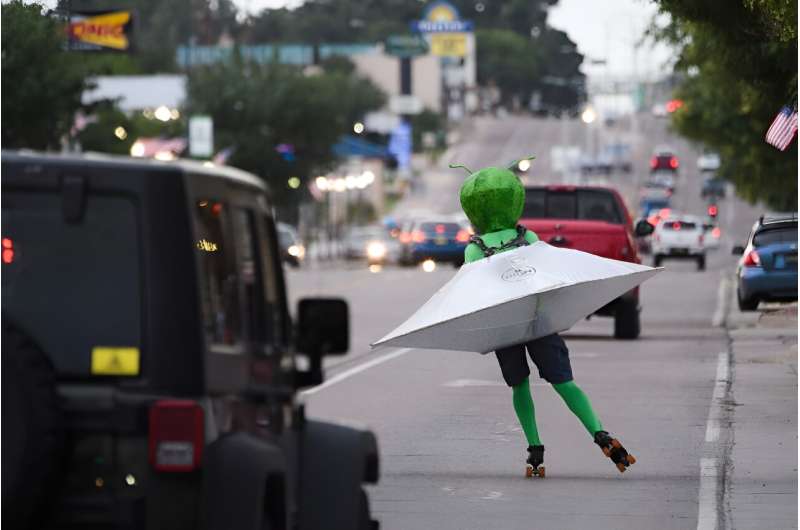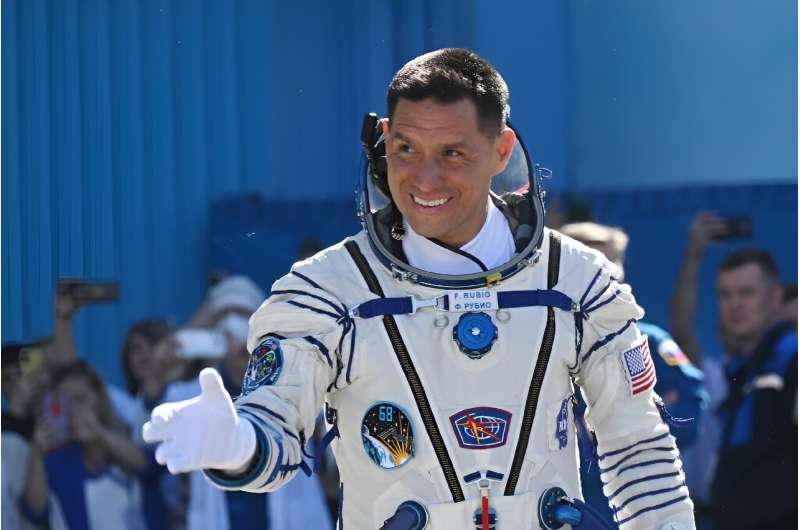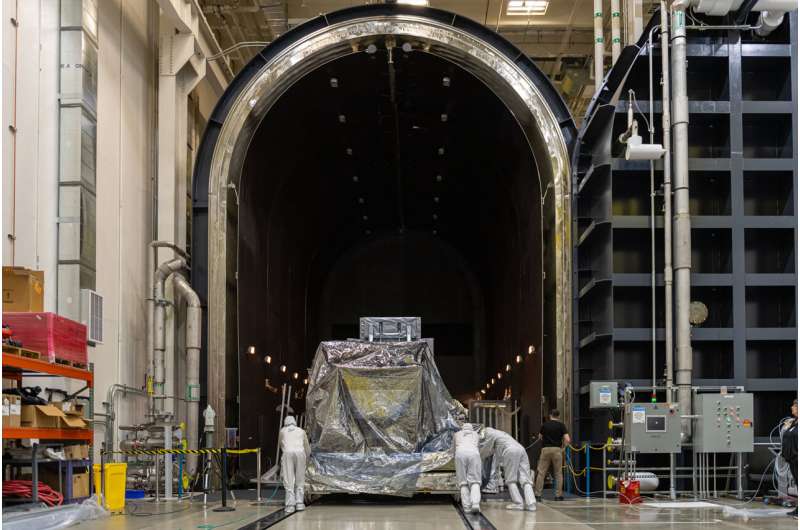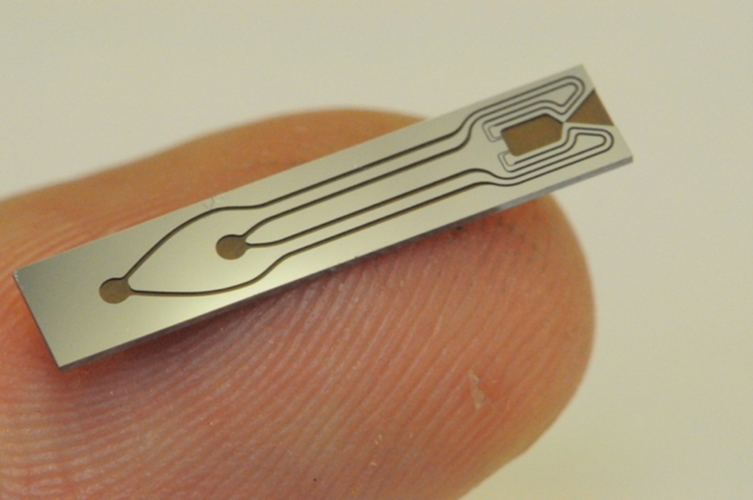
Copernical Team
NASA to publish long-awaited UFO report

NASA is set to release on Thursday the findings of a long-awaited study on unexplained flying objects in Earth's skies.
The US space agency announced last year it was reviewing evidence regarding unidentified anomalous phenomena, or UAPs—which has replaced the term "UFO" in official parlance.
The subject has long fascinated the public but was shunned by mainstream science.
An independent team of 16 researchers shared their preliminary observations in May, finding that existing data and eyewitness reports are insufficient to draw firm conclusions, while calling for more systematic collection of high-quality data.
It's unlikely Thursday's report will change that bottom line—but it could eventually usher in the start of a new mission for the agency.
US astronaut sets record for stint in space

The astronaut Frank Rubio broke the record for the longest in orbit mission by an American, spending more than 355 days aboard the International Space Station.
"In some ways, it's been an incredible challenge. But in other ways, it's been an incredible blessing," Rubio said Wednesday from the ISS during a chat with NASA that was broadcast live.
Having broken the old record Monday, Rubio said he was now looking forward to reaching 365 days.
Primary instrument for NASA's Roman completed, begins tests

A team of engineers and technicians at Ball Aerospace, one of the industry partners for NASA's Nancy Grace Roman Space Telescope, and NASA's Goddard Space Flight Center in Greenbelt, Maryland, has finished assembling the spacecraft's giant camera. Called the Wide Field Instrument (WFI), this state-of-the-art tool will enable astronomers to explore the cosmos from the outskirts of our solar system to the edge of the observable universe.
"The year-long integration effort culminates in the instrument's first baseline performance testing, where we turn on the instrument to ensure it's working as expected," said Mary Walker, Roman's WFI instrument manager at Goddard.
Mini space thruster that runs on water
 Image:
Mini space thruster that runs on water
Image:
Mini space thruster that runs on water Showcase your climate data visualisation talent

Are you a creative visionary with a passion for climate action? Enter ESA’s latest competition to showcase your talent by transforming decades of satellite climate data into impactful visuals to help bridge the gap between climate science, policy makers and the wider public. The winner will have the unique opportunity to display their data visualisation at the 2023 United Nations Climate Change Conference (COP28) taking place later this year.
Researchers discover quantum switch for regulating photosynthesis
 Photosynthesis is a crucial process that allows plants to convert carbon dioxide into organic compounds using solar energy. Light-harvesting complex II (LHCII) is a complex of pigment molecules bound to proteins. It switches between two main functions-dissipating harmful excess light energy as heat under high light intensity through nonphotochemical quenching, and transferring absorbed light to
Photosynthesis is a crucial process that allows plants to convert carbon dioxide into organic compounds using solar energy. Light-harvesting complex II (LHCII) is a complex of pigment molecules bound to proteins. It switches between two main functions-dissipating harmful excess light energy as heat under high light intensity through nonphotochemical quenching, and transferring absorbed light to Synchrotron studies change the composition of the Earth's core
 In work published in Science Advances, a team of researchers have determined a new pressure scale, which is critical for understanding the Earth's composition. Using x-rays from a uniquely powerful spectrometer at RIKEN's SPring-8 Center they avoided some of the large approximations of previous work, discovering that the previous scale overestimated pressure by more than 20% at 230 gigapascals (
In work published in Science Advances, a team of researchers have determined a new pressure scale, which is critical for understanding the Earth's composition. Using x-rays from a uniquely powerful spectrometer at RIKEN's SPring-8 Center they avoided some of the large approximations of previous work, discovering that the previous scale overestimated pressure by more than 20% at 230 gigapascals ( Umbra partners with EUSI to offer SAR imagery to European remote sensing projects
 Umbra, a leader in advanced space radar technology, is pleased to announce a strategic partnership with European Space Imaging (EUSI), a leading provider of Very High Resolution (VHR) optical satellite imagery. This partnership will allow customers to purchase Umbra's industry-leading Synthetic Aperture Radar (SAR) data directly through EUSI.
This collaboration offers a significant benefit
Umbra, a leader in advanced space radar technology, is pleased to announce a strategic partnership with European Space Imaging (EUSI), a leading provider of Very High Resolution (VHR) optical satellite imagery. This partnership will allow customers to purchase Umbra's industry-leading Synthetic Aperture Radar (SAR) data directly through EUSI.
This collaboration offers a significant benefit Lightning in a camera from above
 ESA astronaut Andreas Mogensen will film thunderstorms and lightning shooting up towards space as part of the climate science of the Huginn mission.
We all know the flash of lightning followed by the sound of thunder but the physics behind the phenomena is not fully understood. The lightning we see occurs when clouds become electrically charged and discharge with the ground. But most light
ESA astronaut Andreas Mogensen will film thunderstorms and lightning shooting up towards space as part of the climate science of the Huginn mission.
We all know the flash of lightning followed by the sound of thunder but the physics behind the phenomena is not fully understood. The lightning we see occurs when clouds become electrically charged and discharge with the ground. But most light EUMETSAT: A Forecasting Revolution on Its Way
 The preliminary data from the MTG-I1 satellite, the first of a new generation of meteorological satellites for the even better monitoring and forecasting of severe weather events, are breathtaking. They keep the promise of a revolution in weather forecasting and in nowcasting destructive extreme weather events.
As the calibration and validation of the various elements of the spacecraft and
The preliminary data from the MTG-I1 satellite, the first of a new generation of meteorological satellites for the even better monitoring and forecasting of severe weather events, are breathtaking. They keep the promise of a revolution in weather forecasting and in nowcasting destructive extreme weather events.
As the calibration and validation of the various elements of the spacecraft and 































